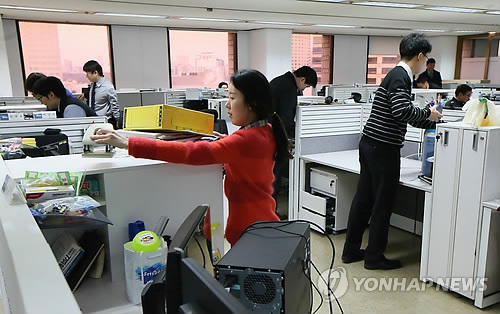South Korean firms need to overhaul their corporate culture to enhance global competitiveness, specialists here said Wednesday.
"What's important, above all, is to change the way of work and culture," Choi Won-sik, head of McKinsey & Company's Seoul office, said in a forum hosted by the Korea Chamber of Commerce and Industry.

It will be hard to ride out the current challenges facing South Korea if it fails to improve the nation's corporate culture by sticking to the past success model of focusing on manufacturing capability and rapid growth.
Choi pointed out that South Korean firms are still caught with the outdated success model of focusing on manufacturing capability and rapid growth.
He called for local companies to increase in-house communication and establish a new corporate culture, away from the authoritarian-style management.
A survey by the KCCI on more than 500 participants in the session showed that 98.4 percent believe corporate competitiveness is affected by corporate culture.
And 91 percent of the respondents said it's difficult to expect enhanced competitiveness, demanding an urgent improvement in internal corporate culture.
Lee Jeong-dong, professor at Seoul National University, pointed out creativity and innovation are based on repeated "failures."
"Failure needs to be recognized as assets, not costs. It's urgent to build the corporate culture to encourage trial and error," he said.
KCCI officials emphasized the importance of the "software" of corporate management.
"Even if companies expand facility investment and recruit talented workers, it's hard to reap good accomplishments if the software of corporate management to combine capital and human resources is outdated," said Jun In-sik, chief of the KCCI's corporate culture division.
In March, the KCCI issued a report that takes issue with the rigidly top-down corporate culture in South Korea, saying it could undermine global competitiveness. (Yonhap)







